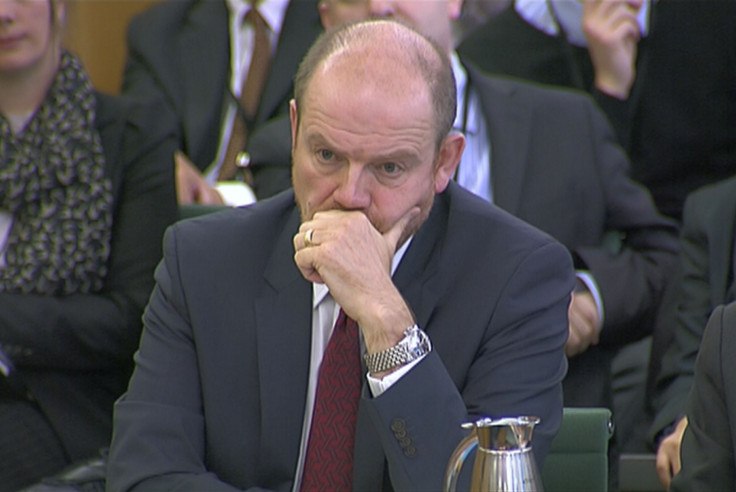Why The New York Times (NYT) CEO Is Testifying Before Parliament -- Again

For many journalists, jumping ship from a publicly-funded television broadcaster to a cash-strapped newspaper would bring financial -- and, in some cases, professional -- anguish.
Not for Mark Thompson, the still-green CEO of the New York Times Company (NYSE:NYT).
His eight years as director-general of the BBC continue to haunt him, as he appeared before the British House of Commons Monday for the second time in nine months to testify about alleged misconduct during his tenure.
Thompson, who resigned from the British broadcaster in March, was grilled by parliamentarians on Monday afternoon over outsized severance packages doled out to high-level BBC executives, including to his former deputy.
Lord Patten, the chairman of the taxpayer-funded BBC Trust, said he was “shocked and dismayed” that two of those payments -- a 1 million pounds payoff to former deputy director general Mark Byford, and another of 387,500 pounds to the BBC's former marketing director Sharon Baylay -- were larger than required by the pink-slipped parties’ contracts.
Thompson said he believed the payouts had the full support of the Trust.
“We took a decision not to issue formal notice until June 2011 and from that moment we absolutely followed the contract strictly,” Thompson said at the hearing. “It is an operational management decision.”
Documents published last week by Britain’s public spending watchdog the National Audit Office showed that Thompson said Byford could receive as much as 2.5 million in severance. But he believed such a hefty payout would draw loud public outcry.
Thompson was in the U.K. to deliver a speech last Friday on the economics of newspaper journalism at the University of Oxford. But by Monday -- his last day away from his post in New York, a Times spokeswoman told International Business Times -- he found himself facing the wary eyes of members of parliament yet again in less than a year, albeit for slightly less disturbing reasons this time.
He testified before a committee in London last November amid allegations that he squelched a BBC investigation into former TV star Jimmy Savile’s sexual abuse of hundreds of children.
The scandal, of which Thompson has largely scrubbed his hands clean, raised questions about his appointment as the new leader of the U.S. paper of record as it revamped its business model to adapt to the Internet.
Thompson sat down with two of the Times’ top media reporters, and faced the often-withering scrutiny of public editor Margaret Sullivan, who wrote at the time: “His integrity and decision-making are bound to affect the Times and its journalism -- profoundly. It’s worth considering now whether he is the right person for the job, given this turn of events.”
Asked whether the new payout controversy revived any questions about Thompson's leadership at the Times, a spokeswoman simply told IBTimes: "No."
But Liang Feng, an analyst at Morningstar, told IBTimes the most recent scandal at Thompson’s former employer is unlikely to affect investors’ confidence in him.
“The BBC is a public company so it’s under different scrutiny than the New York Times,” Feng said. “As long as the company is making progress, I’m not sure investors would be particularly concerned.”
He added that recent digital growth, and the execution of his “New York Times-first” rebranding strategy -- which included selling the Boston Globe-led New England Media Group subsidiary -- have given shareholders reason to stay steadfast.
Shares in the Times Company were up nearly 2 percent to $11.27 just before noon on Monday.
© Copyright IBTimes 2024. All rights reserved.





















